Vocabulary enhancement Normal Elementary Phonics Worksheets for Ages 6-8
5 filtered results
-
From - To
Enhance your child’s vocabulary with our engaging Normal Elementary Phonics Worksheets for ages 6-8. Designed specifically for early learners, these worksheets focus on phonetic sounds and word recognition, encouraging young minds to explore language in a fun and interactive way. Each activity promotes essential reading and writing skills while building vocabulary through imaginative exercises, including matching, categorizing, and creative writing prompts. Our worksheets are perfect for use in the classroom or at home, ensuring that your child gains confidence in their language abilities. Unlock the potential for lifelong learning as your child embarks on their phonics journey with these captivating resources!
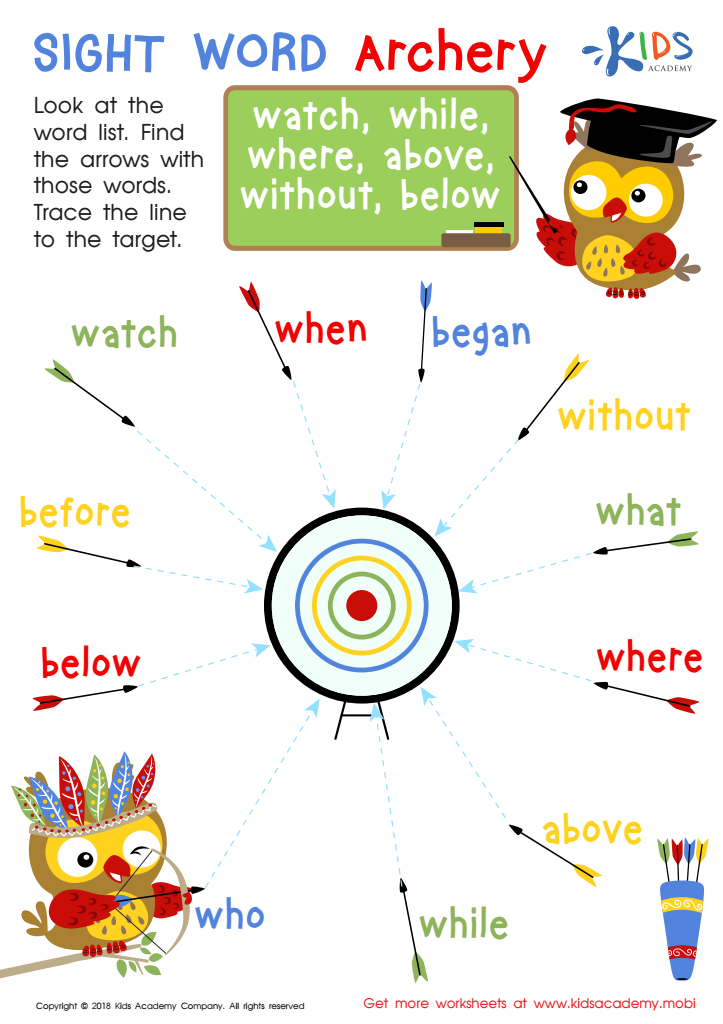

Sight Word Archery Worksheet
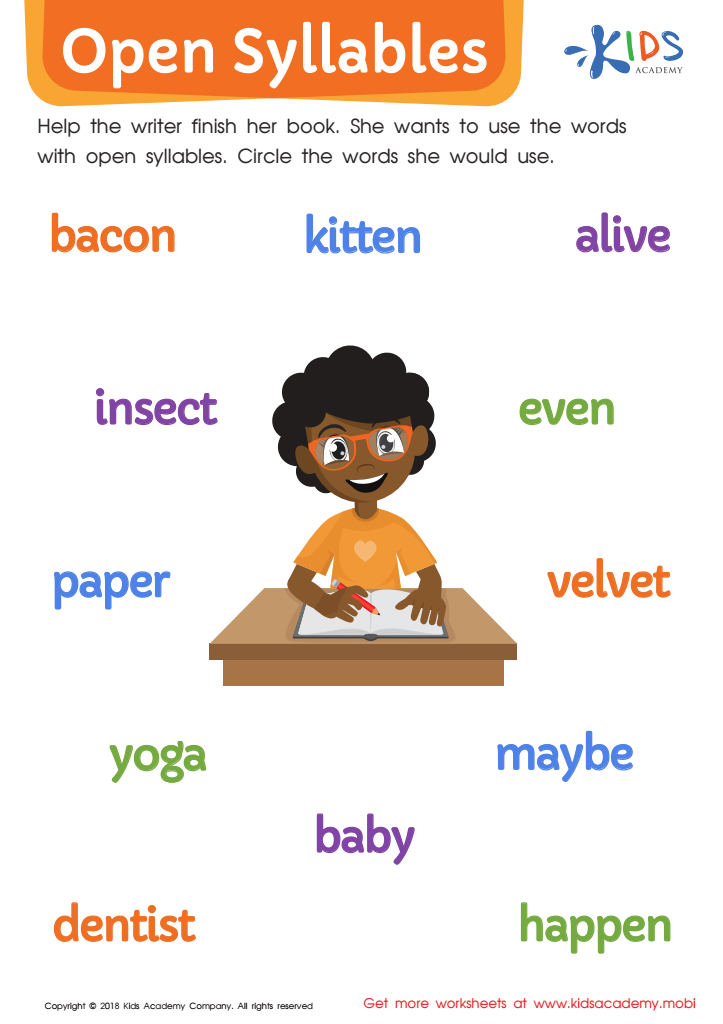

Open Syllables Worksheet
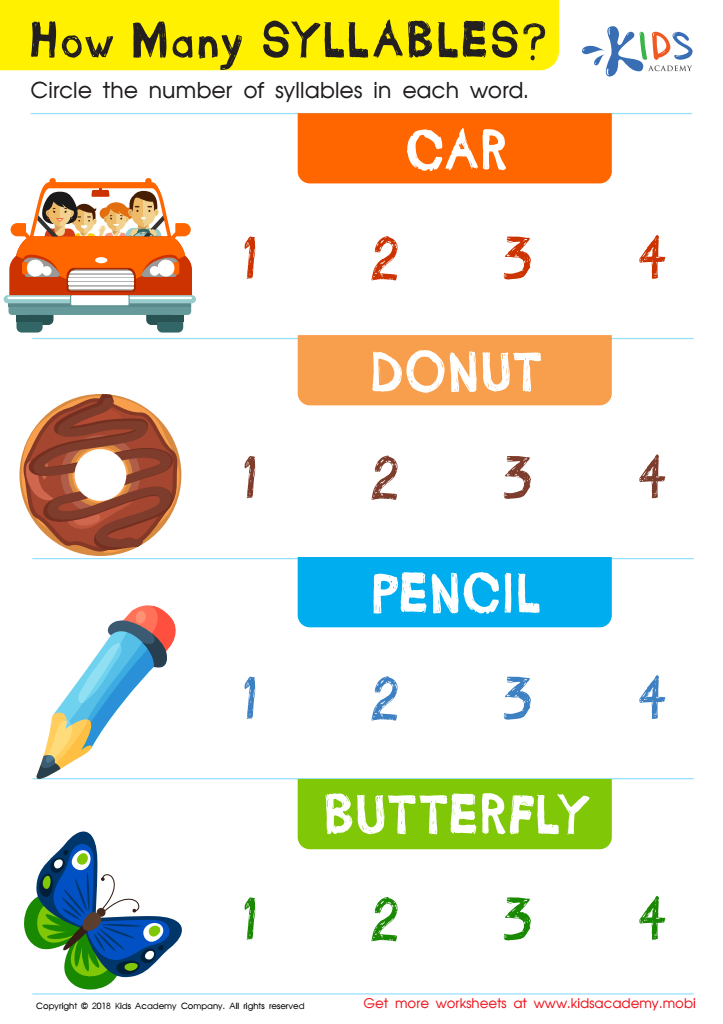

How Many Syllables? Worksheet
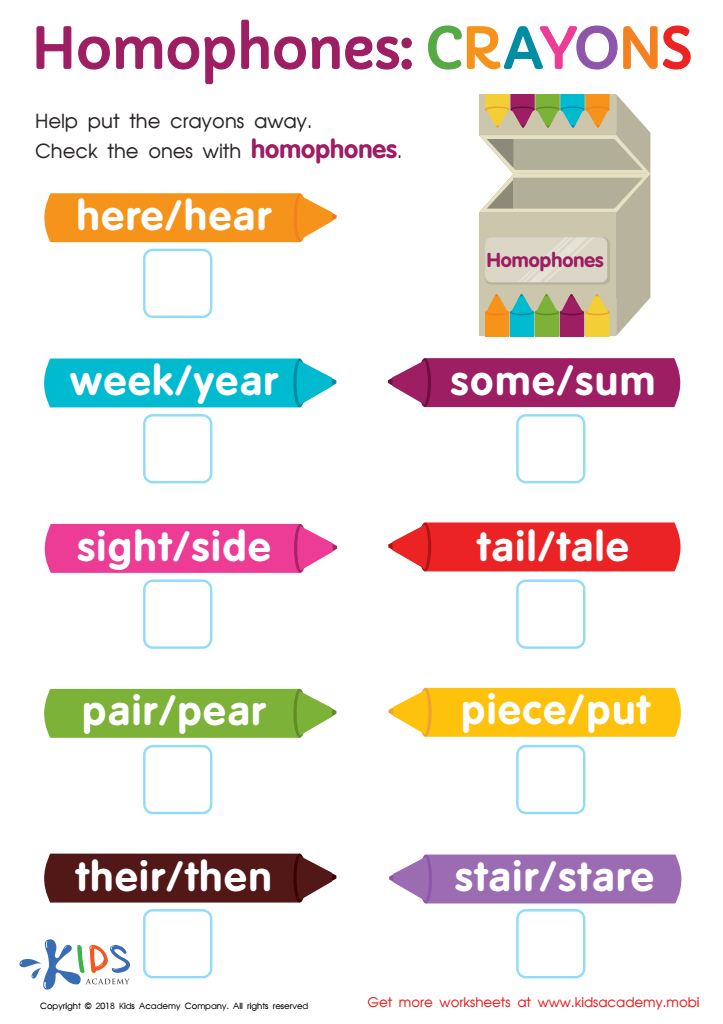

Homophones: Crayons Worksheet
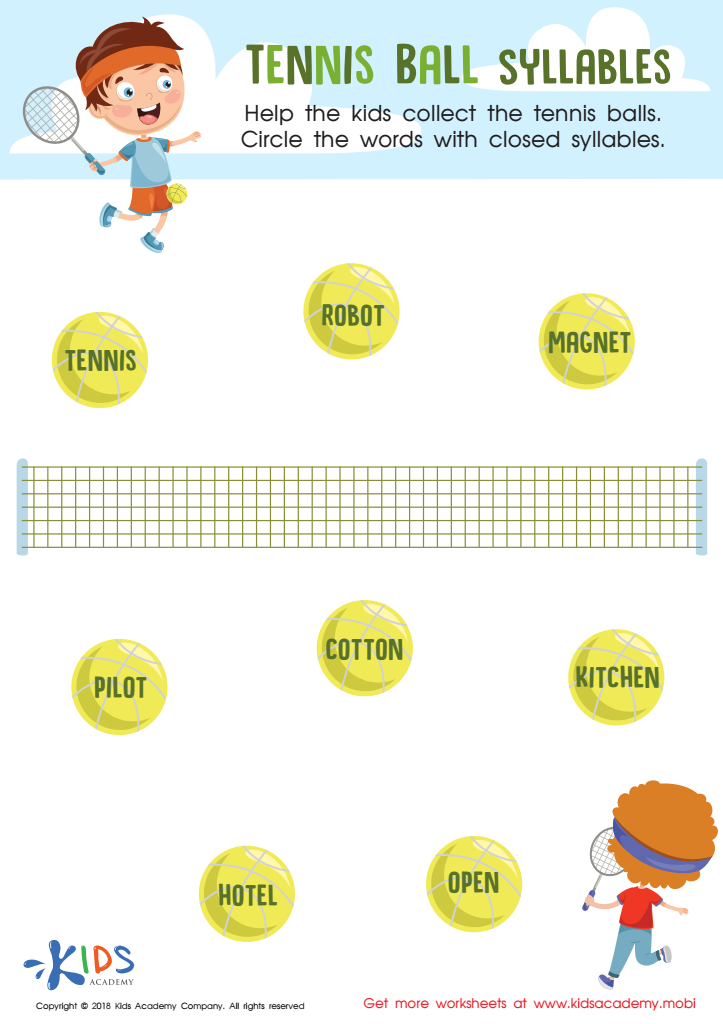

Tennis Ball Syllables Worksheet
Vocabulary enhancement is crucial for children aged 6-8 as it profoundly impacts their reading, writing, and overall communication skills. During this early developmental stage, vocabulary lays the foundation for literacy; children who have a robust vocabulary can comprehend texts better, express their thoughts clearly, and participate actively in classroom discussions.
Normal Elementary Phonics is an effective approach to vocabulary development, helping children decode words and understand their meanings through engaging methods. Phonics instruction equips them with the skills to sound out words, enabling independent reading and the ability to encounter new vocabulary confidently.
Moreover, enhancing vocabulary at this age promotes cognitive development. Children learn to categorize and relate words, which boosts critical thinking skills. With a strong vocabulary, students are better prepared for more advanced academic challenges in subsequent years and are likely to perform better in language arts assessments.
By focusing on vocabulary enhancement through phonics, teachers and parents can foster a love for reading and learning, creating lifelong learners. Investing in vocabulary development from an early age equips children with essential tools for success in school and beyond, ensuring they have the skills necessary to thrive in their educational journey.
 Assign to My Students
Assign to My Students









